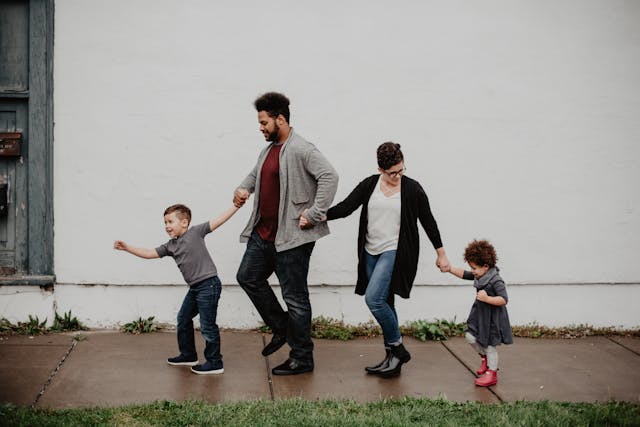Addiction doesn’t just affect the person struggling with substance use—it impacts the entire family. Whether it’s a spouse, parent, child, or sibling, family members often take on specific roles in response to the chaos and emotional toll that addiction brings. These roles can sometimes unintentionally enable the addiction or create barriers to healing. Understanding family roles in addiction is a crucial step toward breaking the cycle and beginning the recovery process—for everyone involved.

At Cornerstone Healing Center, we recognize that healing from addiction is a family journey. Our Arizona-based facility offers compassionate, trauma-informed care designed to address not only the individual’s needs but also the complex dynamics within the family system. With a caring staff—many of whom are in recovery themselves—we provide a safe, supportive space for long-term recovery.
Post Contents
How Addiction Disrupts Family Dynamics
When addiction enters a home, it creates a ripple effect. Communication often breaks down, trust erodes, and stress levels rise. Over time, each family member may adapt in different ways to cope with the situation. These coping mechanisms often become defined roles that—while initially protective—can eventually contribute to dysfunction.
Recognizing these roles is the first step toward creating a healthier family environment.
Common Family Roles in Addiction
Here are some of the most common family roles in addiction and how they manifest:
1. The Addict
This is the individual struggling with substance use. Their behavior often becomes the central focus of the family. Decisions, energy, and emotional responses tend to revolve around them—sometimes enabling the addiction to continue.
2. The Enabler
The enabler often covers for the addict, making excuses or taking responsibility for their behavior. While this may come from a place of love, it can prevent the addict from experiencing the consequences of their actions and delay their decision to seek help.
3. The Hero
Usually the overachiever, the hero works hard to project a sense of normalcy and success. They often feel pressure to “hold it all together,” which can lead to anxiety, stress, and emotional burnout.
4. The Scapegoat
This family member may act out, get into trouble, or become rebellious to divert attention away from the addict. They may feel overlooked or misunderstood and are often blamed for unrelated problems within the family.
5. The Mascot
The mascot uses humor to cope with the tension in the household. They try to lighten the mood or distract others with jokes, often hiding their own fear, sadness, or confusion.
6. The Lost Child
The lost child tends to withdraw, avoiding conflict and attention. They may isolate themselves emotionally or physically, often feeling invisible and unsupported.
These roles can shift over time and vary from family to family, but they are common patterns seen in families affected by substance abuse.
Why Family Involvement in Treatment Matters
Addiction is a family disease—and recovery should involve the whole family as well. At CornerstoneHealingCenter.com, we offer family therapy, education, and support groups that help relatives and loved ones:
- Understand addiction as a disease
- Recognize enabling behaviors and unhealthy roles
- Improve communication and rebuild trust
- Learn coping strategies and self-care tools
- Set healthy boundaries moving forward
Healing family relationships is critical to sustaining long-term sobriety. When families work together to change the dynamic, the person in recovery is more likely to feel supported and stay on the path to wellness.
A Safe Space to Heal at Cornerstone Healing Center
Located in Arizona, Cornerstone Healing Center offers a peaceful, private setting where individuals and families can begin their recovery journeys together. Our treatment programs address addiction, mental health, and trauma with personalized care plans that evolve with your needs.
- Substance abuse treatment for drugs and alcohol
- Alcohol rehab with medically supervised detox
- Dual-diagnosis care for co-occurring mental health conditions
- Individual and family therapy with licensed clinicians
- Group counseling and peer support
- Relapse prevention, life skills development, and aftercare planning
Many of our team members are in recovery themselves, creating an atmosphere of empathy, respect, and real-life experience. We understand that both the individual and their family members need healing in order to move forward.
Long-Term Recovery Through Family Support
Sustainable recovery doesn’t happen in isolation. Research consistently shows that people who have strong, healthy family support are more likely to maintain sobriety. That’s why we continue to involve families even after formal treatment ends.
Our aftercare programs include:
- Ongoing therapy and family check-ins
- Alumni support groups and events
- Education around relapse warning signs
- Strategies for maintaining boundaries and communication
- Continued access to mental health services and resources
By continuing to engage and educate families, we help clients build a lasting foundation for recovery and emotional resilience.
Start Healing as a Family Today
Understanding family roles in addiction is the first step toward healing the entire system—not just the individual. At Cornerstone Healing Center, we guide families through that process with compassion, experience, and clinically proven methods.
If someone you love is struggling with addiction, or if you recognize these family roles in your own home, know that help is available. Our team is here to provide the tools, therapy, and support needed to begin a new chapter—together.
Visit CornerstoneHealingCenter.com to learn more about our addiction rehab and mental health services. Healing is possible, and it begins with understanding, connection, and support.